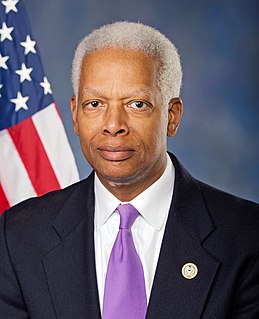A Quote by Raghuram Rajan
It is the central bank governor, unlike other regulators or government secretaries, who has command over significant policy levers and has to occasionally disagree with the most powerful people in the country.
Related Quotes
When you own gold you're fighting every central bank in the world. That's because gold is a currency that competes with government currencies and has a powerful influence on interest rates and the price of government bonds. And that's why central banks long have tried to suppress the price of gold. Gold is the ticket out of the central banking system, the escape from coercive central bank and government power.
So: if the chronic inflation undergone by Americans, and in almost every other country, is caused by the continuing creation of new money, and if in each country its governmental "Central Bank" (in the United States, the Federal Reserve) is the sole monopoly source and creator of all money, who then is responsible for the blight of inflation? Who except the very institution that is solely empowered to create money, that is, the Fed (and the Bank of England, and the Bank of Italy, and other central banks) itself?
Global central banks are working hard to lift their economies through an aggressively easy monetary policy. The ECB [European Central Bank] and BOJ [Bank of Japan] are buying tens of billions of bonds and other financial securities each month in an effort to stimulate their economies, which is pushing down rates everywhere, including in the U.S.
The problems of the global economy are not based in perception, but in the reality of prices, balance sheets and income statements, vast concentrations of wealth and power, precarious systemic imbalances, ruthless exploitation, and command economies mismanaged by Central State/Bank policy and manipulation.
People vastly overestimate the ability of central planners to improve on the independent action of diverse individuals. What I've learned watching regulators is that they almost always make things worse. If regulators did nothing, the self-correcting mechanisms of the market would mitigate most problems with more finesse. And less cost.
The lesson for Asia is; if you have a central bank, have a floating exchange rate; if you want to have a fixed exchange rate, abolish your central bank and adopt a currency board instead. Either extreme; a fixed exchange rate through a currency board, but no central bank, or a central bank plus truly floating exchange rates; either of those is a tenable arrangement. But a pegged exchange rate with a central bank is a recipe for trouble.
This is the joint responsibility of everyone who was involved in the introduction of the euro without understanding the consequences. When the euro was introduced, the regulators allowed banks to buy unlimited amounts of government bonds without setting aside any equity capital. And the European Central Bank discounted all government bonds on equal terms. So commercial banks found it advantageous to accumulate the bonds of the weaker countries to earn a few extra basis points.
When we look at government in Washington or what's happening on Wall Street, we see so much centralization. But really, our goals should be to eliminate and overcome these central institutions. And in recent years we have gained powerful new tools to do this, and most significant among those is the block chain, which is the software behind Bitcoin.



































